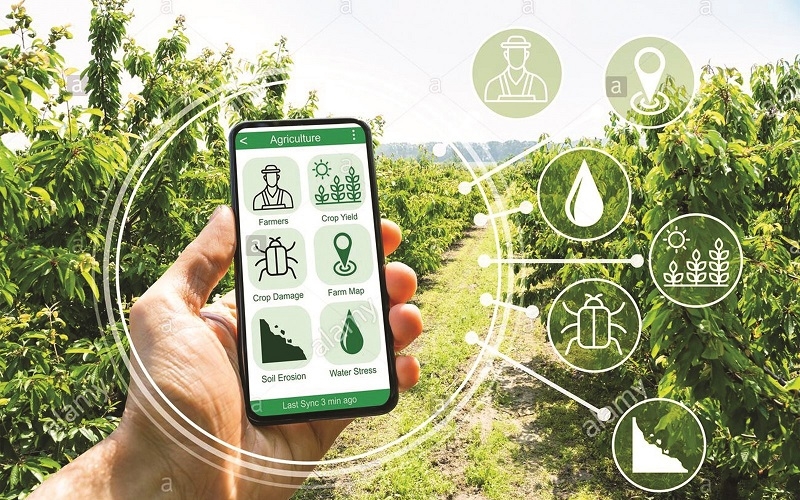Promoting comprehensive digital transformation in agricultural sector
Digital transformation, regarding the agricultural sector and rural development, plays a particularly important role in restructuring the agricultural sector while boosting concentrated, large-scale commodity agriculture towards high added value and sustainability.

|
According to the Prime Minister's Decision 749/QD-TTg on the “National Digital Transformation Programme until 2025, with a vision to 2030”, agriculture is one of the eight priority sectors for digital transformation. Digital transformation in agriculture and rural areas is an indispensable and objective requirement, best seen as a method to realise the goal of developing smart agriculture and modern rural areas while increasing the proportion of digital agriculture in the production as well as the economy. Many challenges remain Speaking at the “Digital transformation in agriculture sector” workshop, held within the framework of the Vietnam DX Summit 2021 on December 2, Dang Duy Hien, deputy head of the Ministry of Agriculture and Rural Development Office, said that science and technology in agriculture was promoted within the 2016-2020 period and included solutions in terms of productivity, quality and competitiveness improvement towards green and smart agriculture. Precision agricultural management solutions and programmes have been applied to optimise the use of resources (water, fertilizers, etc.) in order to gradually transform from traditional agriculture into modern agriculture, creating many opportunities to increase labour productivity, reduce dependence on weather conditions, control epidemics as well as others. According to Deputy Director of the Vietnam Academy of Agricultural Sciences (VAAS) Dao The Anh, the process of digital transformation for the agricultural sector in Vietnam still faces many challenges. There is still a shortage of digital infrastructure in rural areas where farmers' awareness and skills in using smart devices are still limited. In addition, the digital database for agriculture is scattered and yet to be synchronously digitised. The investment rate for smart agriculture and technology is much higher than that of traditional agriculture, so the majority of family farmers are not eligible to invest in this option. In addition, resources from the State budget and credit capital invested in high-tech and smart agriculture remain modest. Main solutions suggested for digital transformation in the agricultural sector Dang Duy Hien emphasised the need to promote a more comprehensive digital transformation in the agricultural sector and suggested to focus on main issues including developing high-tech agriculture, smart agriculture, precision agriculture, and increasing the proportion of digital agriculture within the economy. He said that implementing digital transformation and digital economy in agriculture must be based on available data. Specifically, it is necessary to focus on building big data systems, in which priority is given to land for rice cultivation, forest, fruit trees, industrial plants, animal husbandry and aquaculture in addition to building an integrated observation and monitoring network in the air and on the ground serving all agricultural activities. At the same time, the provision of information on the environment, weather, and soil quality as well as the sharing of agricultural equipment across digital platforms, should be boosted to help farmers improve productivity and crop quality. “It is necessary to apply digital technology to automating production and business processes, monitoring traceability, and identifying growing area codes and product supply chains in order to ensure food and disease safety,” Hien emphasised. He also suggested the pilot of the initiative “Every farmer is a trader and every cooperative is a business applying digital technology” so that each farmer is trained in applying digital technology for production, supply, distribution, and price forecasting of agricultural products, contributing to fostering the development of e-commerce. In addition, digital transformation and e-government should be promoted in implementing policies regarding agro-ecosystems, rapid response to the impact of epidemics and climate change, market forecasts and warnings as well as supply-demand information. |
